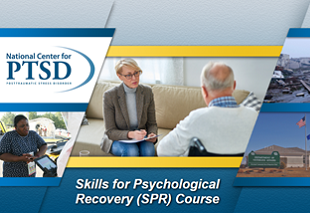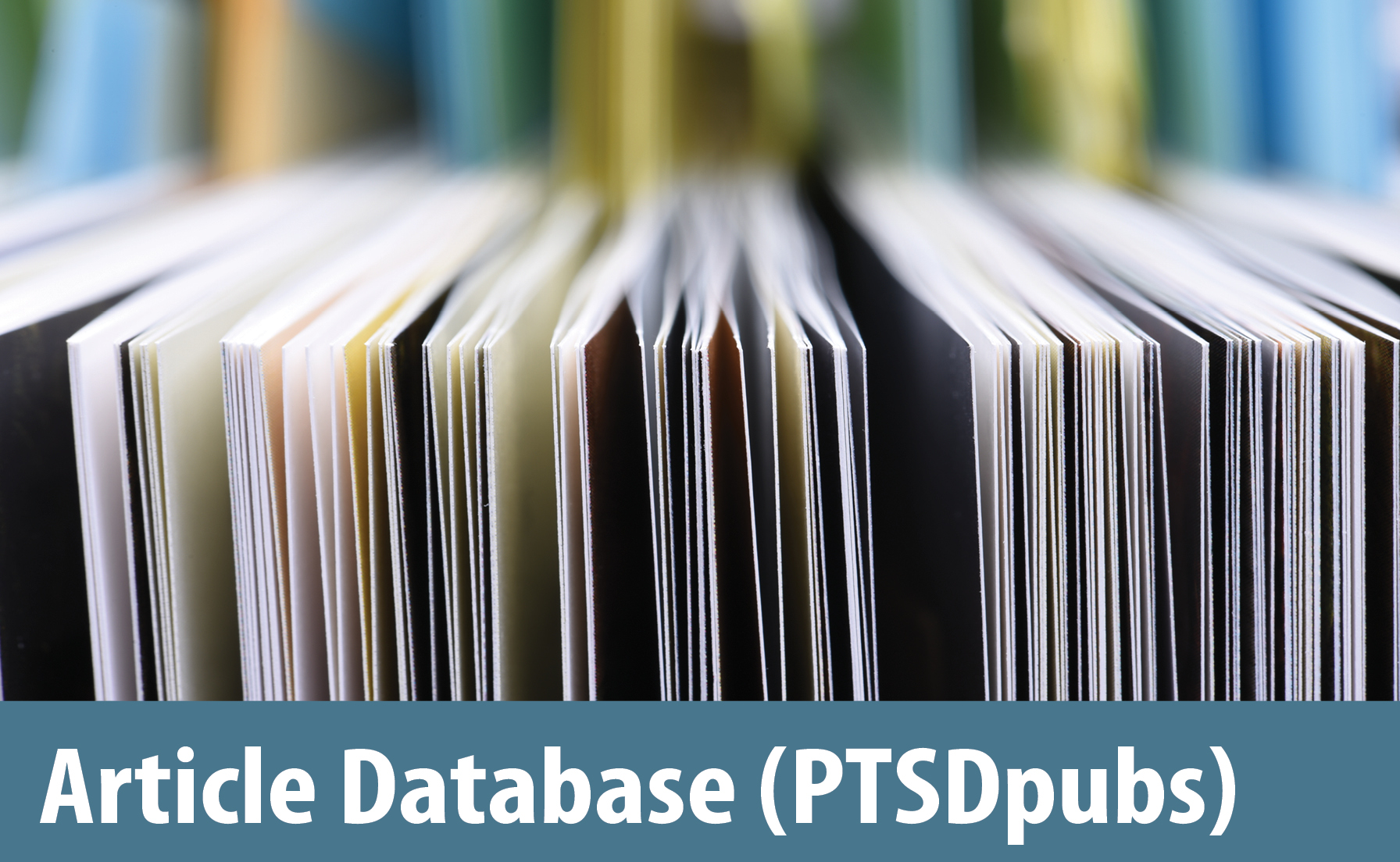PTSD: National Center for PTSD
Skills for Psychological Recovery: Field Operations Guide
Skills for Psychological Recovery: Field Operations Guide

For Disaster Behavioral Health Responders
Skills for Psychological Recovery (SPR), is an intervention designed to follow Psychological First Aid (PFA) in the weeks and months following disasters and mass violence events. SPR aims to help survivors gain skills to manage distress and cope with post-disaster stress and adversity. The SPR Field Operations Guide was developed jointly by the National Center for PTSD and the National Child Traumatic Stress Network, with contributions from individuals involved in disaster research and response.
SPR is not formal mental health treatment, but utilizes skills-building components from mental health treatment that have been found helpful in a variety of post-trauma situations, including problem-solving, positive activities scheduling, managing reactions, helpful thinking, and building healthy social connections. Research suggests that a skills-building approach is more effective than supportive counseling. SPR is appropriate for developmental levels across the lifespan, and is culturally informed. SPR aims to facilitate recovery, support functioning, and prevent behaviors that make things more difficult.
Skills for Psychological Recovery Manual contents
NOTE: The full SPR manual is available in Spanish, Finnish, Japanese, Norwegian and Swedish on the National Child Traumatic Stress Network website.
SPR Training
Online course
The Skills for Psychological Recovery online course offers timely training for providers responding to disasters as well as for those working to bolster resilience-building skills for Veterans. Continuing education credits are available for this course. After completion, learners will be familiar with and able to apply the core components of SPR to help build resilience in both disaster or mass casualty settings and with Veterans.
Continuing Education Course
Skills for Psychological Recovery (SPR)
This online course reviews the evidence-based core skills of SPR and their flexible application in response to disaster or resilience-building with transitioning Veterans.
In-person training
In-person SPR trainings give an opportunity for more time to fully demonstrate the SPR model, to answer questions, and to apply the model to role-plays and case discussions.
During in-person trainings, an effort is made to:
- Assess and train different trainee skill levels
- Incorporate local cultural factors
- Highlight the difference between traditional mental health practice and SPR
- Highlight the difference between SPR and supportive counseling and PFA
- Discuss the importance of a strong partnership with the survivor when providing SPR
- Promote group interactivity and practice
- Illustrate SPR actions with examples and tips
- Highlight the importance of self-care when working with disaster survivors
Ideally, it is best if those implementing SPR are either licensed providers or are being supervised by licensed providers.
We recommend that you obtain training either from one of the authors of SPR or from a designated trainer. You may inquire about in-person trainings by emailing:
- National Center for PTSD: ncptsd@va.gov
- National Child Traumatic Stress Network: mbrymer@mednet.ucla.edu
Author and Development Information
SPR was created with the Terrorism Disaster Branch of the National Child Traumatic Stress Network as well as others involved in disaster response. Production of this material was supported by SAMHSA.
The principal authors of SPR (in alphabetical order) include: Steve Berkowitz, M.D., Richard Bryant, Ph.D., Melissa Brymer, Ph.D., Psy.D., Jessica Hamblen, Ph.D., Anne Jacobs, Ph.D., Christopher Layne, Ph.D., Robert Macy, Ph.D., Howard Osofsky, M.D., Ph.D., Robert Pynoos, M.D., MPH, Josef Ruzek, Ph.D., Alan Steinberg, Ph.D., Eric Vernberg, Ph.D., and Patricia Watson, Ph.D.
For citation: Berkowitz, S., Bryant, R., Brymer, M., Hamblen, J., Jacobs, A., Layne, C., Macy, R., Osofsky, H., Pynoos, R., Ruzek, J., Steinberg, A., Vernberg, E., Watson, P., National Center for PTSD and National Child Traumatic Stress Network, Skills for Psychological Recovery: Field Operations Guide, 2010. Available on: www.nctsn.org and www.ptsd.va.gov.
Copyright © 2010 Berkowitz, S., Bryant, R., Brymer, M., Hamblen, J., Jacobs, A., Layne, C., Macy, R., Osofsky, H., Pynoos, R., Ruzek, J., Steinberg, A., Vernberg, E., Watson, P. (National Center for PTSD and National Child Traumatic Stress Network). All rights reserved. You are welcome to copy or redistribute this material in print or electronically provided the text is not modified, the authors and the National Center for PTSD (NCPTSD) and National Child Traumatic Stress Network (NCTSN) are cited in any use, and no fee is charged for copies of this publication. Unauthorized commercial publication or exploitation of this material is specifically prohibited. Anyone wishing to use any of this material for commercial use must request and receive prior written permission from the NCTSN. Permission for such use is granted on a case-by-case basis at the sole discretion of NCTSN. If you would like permission to adapt or license these materials, please contact Melissa Brymer, Ph.D. at mbrymer@mednet.ucla.edu.
You May Also Be Interested In

Continuing Education Online Courses
Learn from expert researchers and earn free Continuing Education (CE) credits.


























